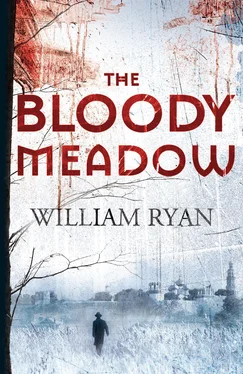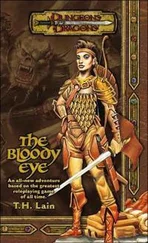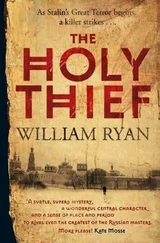William Ryan - The Bloody Meadow
Здесь есть возможность читать онлайн «William Ryan - The Bloody Meadow» весь текст электронной книги совершенно бесплатно (целиком полную версию без сокращений). В некоторых случаях можно слушать аудио, скачать через торрент в формате fb2 и присутствует краткое содержание. Жанр: Исторический детектив, на английском языке. Описание произведения, (предисловие) а так же отзывы посетителей доступны на портале библиотеки ЛибКат.
- Название:The Bloody Meadow
- Автор:
- Жанр:
- Год:неизвестен
- ISBN:нет данных
- Рейтинг книги:5 / 5. Голосов: 1
-
Избранное:Добавить в избранное
- Отзывы:
-
Ваша оценка:
- 100
- 1
- 2
- 3
- 4
- 5
The Bloody Meadow: краткое содержание, описание и аннотация
Предлагаем к чтению аннотацию, описание, краткое содержание или предисловие (зависит от того, что написал сам автор книги «The Bloody Meadow»). Если вы не нашли необходимую информацию о книге — напишите в комментариях, мы постараемся отыскать её.
The Bloody Meadow — читать онлайн бесплатно полную книгу (весь текст) целиком
Ниже представлен текст книги, разбитый по страницам. Система сохранения места последней прочитанной страницы, позволяет с удобством читать онлайн бесплатно книгу «The Bloody Meadow», без необходимости каждый раз заново искать на чём Вы остановились. Поставьте закладку, и сможете в любой момент перейти на страницу, на которой закончили чтение.
Интервал:
Закладка:
His thoughts were interrupted by the sound of approaching footsteps. A tall elderly woman with a straight back and almost military bearing appeared round the corner of the house in the company of Major Mushkin. They were talking quietly, the old woman stabbing the path with a walking stick for emphasis as she marched along. She had a thin, angular face and her grey hair had slipped out from under a worn fur hat, before curling round the upturned collar of her greatcoat. If the walking stick was needed, Korolev decided, it wasn’t for reasons of speed, as she was maintaining a brisk pace, albeit with a stiff, awkward gait.
He coughed and they looked up, coming to a halt, Mushkin’s eyes cold, while the woman seemed to study him as if he were a potential problem that needed brisk and efficient resolution. He raised his hand in greeting.
‘This is Korolev, Mother.’
‘I see,’ she said. ‘If you want the film people, they’re off somewhere. Ask Andreychuk – he’ll be inside. Good morning to you, Comrade Korolev.’
She made to move on, but stopped as Korolev opened his mouth to speak.
‘Well?’ she asked, allowing her stern voice to become a little gentler, making Korolev feel as though he were a child. ‘What is it?’
‘The house seems to be locked, Comrade.’
‘Locked?’ she repeated. ‘I see.’
She pointed her walking stick up at a glass-paned door that offered access to the conservatory.
‘That door will be open, or the one at the other end – and Andreychuk is in there somewhere, I assure you. He’ll know where they are.’
‘Thank you, Comrade.’
She gave a sharp nod of acknowledgement and proceeded on her way, Mushkin falling into step beside her. Korolev looked after them for a moment, confused. Mushkin’s mother? Was that why the major was convalescing here? She certainly behaved as if she belonged here.
He turned back to the house and climbed the chipped steps to the terrace, crossing to the conservatory and knocking on the door Mushkin’s mother had indicated, but there was no answer. He looked around him, wondering whether the elderly woman had been mistaken, at the same time thinking the silence was strange. He found himself whistling under his breath, just to keep himself company. Almost reluctantly, he turned the handle and it opened.
The conservatory was a high room, dominated by two elderly vines that looked as if they’d seen better days. He stepped inside and shut the door quietly behind him. For some reason he felt as though he was trespassing, as though the family who’d once lived here might emerge at any moment and discover him tiptoeing through their home.
He paused for a moment, to reassure himself that this was nonsense, that he was here on official business, and, anyway, he was looking for Babel and everything was fine. But still it was undeniable that there was an atmosphere to the place – the girl had died here, of course, perhaps that was the reason for his uneasiness.
He walked through an open door, passing into a large dining room with a ceiling made entirely of glass through which the natural evening light illuminated the room. At any other time he would have paused to examine the roof more closely because it was extraordinary, but at the far end an old man with a bushy white beard stood, head bowed, in front of one of the four large cast-iron candelabras that protruded from the walls and which must have been installed to illuminate the room before the days of electricity. At the sound of Korolev’s step the old man turned, and Korolev was surprised to see that the milky blue eyes beneath his thick white brows were wet with tears.
‘Are you all right, Comrade?’ he asked, walking towards him.
‘I’m fine,’ the man said, turning away to compose himself.
Which was a lie if Korolev had ever heard one. But it wasn’t his business to pry – not yet at least.
‘Is this where she died?’ he asked, surprised to hear his own voice.
‘Yes,’ the old man said, having turned back towards him. ‘The Lord help me, I was the one who found her.’
Korolev nodded his sympathy, surprised that the old man spoke the Lord’s name so freely. ‘Comrade Andreychuk, is it? The caretaker?’
‘That’s me. Efim Pavlovich Andreychuk. The unlucky Andreychuk. The poor soul who found the dead girl.’
‘My name is Korolev. Alexei Dmitrieyvich. I’m a friend of Babel, the writer. I was sorry to hear the news.’
‘The film people are out in the fields, if you’re looking for them. But they should be back soon.’ Andreychuk turned back towards the bracket. ‘She should have stayed in Moscow, you see. This place never brought her anything but sadness.’
‘What do you mean?’ Korolev asked, thinking the words curious. The girl hadn’t spent that long on the film – surely not long enough to pack in so much sadness. Andreychuk looked round at him as though he’d forgotten Korolev was there.
‘She’s dead, that’s what I mean,’ the caretaker said, frowning. ‘Nothing more than that.’
‘But you spoke as though she came from round here. I thought she came from Moscow.’
Andreychuk’s frown deepened, and his voice, when he spoke, was gruff. ‘She was from these parts a long time ago, or so she told me. She should have stayed in Moscow.’
Interesting that she’d been from the area – that information wasn’t in the file.
‘Was there something underneath?’ he asked, looking back at the wall bracket and wondering how she’d done it. ‘For her to stand on?’
Andreychuk glanced round at him, suspicious but also thinking.
‘A chair,’ he said after a few moments. ‘Someone must have moved it.’
Korolev looked at the wall fixture and tried to imagine the girl preparing the noose, tying the rope round one of the metal arms – they looked solid enough – and then kicking the chair away.
‘A hard way to go,’ he said, stating the obvious – a skill he’d learnt early in his career as a policeman. ‘There are easier ways to kill yourself.’
‘I don’t know why she did it. All I know is I wish I hadn’t been the one to find her. Excuse me, Comrade, I’ve work to attend to.’
The caretaker turned and walked out of the room and Korolev tried to imagine how it must have been for him when he found her – the weight of the corpse swinging, her feet inches from the ground. No wonder the poor fellow was a little taciturn.
He took a deep breath and opened his notebook and by holding his hand above his head estimated the height of the bracket, knowing, as he did, the distance from the ground of his up-stretched index finger. Seven foot two inches, give or take an inch or two. He’d measure it properly later on. He looked around – there was no shortage of chairs, but as to which of them had been underneath the dead girl, it was impossible to tell. He folded his notebook shut and turned to leave the room. If necessary he’d get a forensic team to have a look around, but it was a shame that there’d been no effort to preserve the scene. Perhaps Rodinov had thought it might be indiscreet to do so.
With nothing else to do, Korolev gave himself a tour of the house. At some stage much of the original furniture must have been replaced with more functional pieces, better suited to the house’s new role as an educational establishment for Soviet youth, but there was still plenty of the finest marble and gilding in evidence and the walls and ceilings still carried beautiful murals and frescoes.
Eventually Korolev found himself in the large entrance hall, the walls of which were hung with Ottoman weaponry, presumably from when this part of the world had been taken from the Turks. The front door was now mysteriously open and so he walked out through the splendid porch towards the stables, where the Ukrainfilm vehicles stood on the cobblestoned yard.
Читать дальшеИнтервал:
Закладка:
Похожие книги на «The Bloody Meadow»
Представляем Вашему вниманию похожие книги на «The Bloody Meadow» списком для выбора. Мы отобрали схожую по названию и смыслу литературу в надежде предоставить читателям больше вариантов отыскать новые, интересные, ещё непрочитанные произведения.
Обсуждение, отзывы о книге «The Bloody Meadow» и просто собственные мнения читателей. Оставьте ваши комментарии, напишите, что Вы думаете о произведении, его смысле или главных героях. Укажите что конкретно понравилось, а что нет, и почему Вы так считаете.












